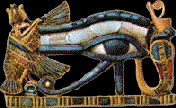Look at that imaginary planet - made entirely of water, can you imagine what life would look like there? Would we even recognize anything that wasn't carbon-based like ourselves? And since we're over-certain to a fault as to how the series of chaotic accidents started the formation of one single cell on planet earth, I'm wondering what choas would cause "planet water" to evolve its life-forms, and obviously, how they'd appear. If water is identical throughout the cosmos, there'd be no reason for an animal with lungs to evolve. Underwater plants are very successful here, all they require is the current to float their food on by and they grab it, like the anemone. But that's assuming water is water is water. Everywhere. Would "planet water" be composed of H2O and components we know and understand? If not, what kind of life exists in this quasi-water and how would we recognize it?
That's one of the questions scientists are asking with paleo-astronomers as NASA prepares to launch a series of missions in search of extraterrestrial life within our own solar system. Just this tiny little spot on the face of our small galaxy affords a plethora of treasures to help us understand how the universe came into being. The true heavy thinkers can't quite form a vision of, say, silicone-based life, so a 2007 report from the National Research Council has widened this search to include what they called "weird life". Isn't that great? They actually gave something a name which describes exactly what it is, in two one-syllable words - thank you!
Dr. Steven Benner is a scientist at the Foundation for Applied Molecular Evolution, and contributed to that report. Obviously, the study of how a molecule evolves so many varieties of life on this one planet is a job many would pay to have (yes yes!) The basic assumption about life is that it's like us - carbon-based and requires water to survive. But that may not be the case in the rest of the universe. "Weird life" is life we've never seen and cannot imagine.
So how do we search for life we can't conceive of? Life we may not recognize if we saw it? Dr. Benner presents two plausible ways: we can start with our own genetic code in the lab and play around with its structure (actually we already do that, have been, when we attenuate the DNA of a virus to make a vaccine, or just manipulating human DNA to study mutations in our genetic code) ; or, and this makes one think: we can examine the environment we might be landing on and try to create a chemical structure that might exist there. Like our "planet water"; in such an environment the hypotheses we could put forth about the genetic structure of life would be endless, given our knowledge of water on planet earth. Yet again, is water water everywhere? And if not, what chemical ingredient is missing, or added, and would it still be liquid? Not as we know it, I would say.
Many believe this galaxy and our own solar system have been visited by forms of life completely alien to the carbon-based earthly life we know. These life-forms may have come and gone, perhaps through a "rip" in the space-time continuum, saw, took what they needed, experimented and left - just as we do on Mars, Venus, etc. The definition of "superior life form" would surpass what we define it as now. Those beings would know they were looking at evolving life in millions of forms here on earth. They would have no use but curiosity to visit any other planets, all mostly gaseous, none able to sustain the animal, vegetable and mineral life which make up this planet and the only categories we know to exist.
So we're launching missions into our solar system. We're looking for life. The theory is, superior life can recognize inferior life. Yet look at the simple ant - a life we easily think of as inferior, yet this insect runs a controlled colony where each member has a given task and does it, protects its queen who is the only life-giver, thereby controlling population, has a well-run nursery, they have soldier ants to fight off enemy attackers and give the colony a chance to hide the queen in a protective tunnel, they grow their own food by gathering vegetation as compost which grows a fungus which they feed on, they don't murder one another, don't rape, steal, or jeopardize their environment in any way, they don't skip work or call in sick. Compare them to the superior human. When we venture into space we may have to re-define that term.
Again - I wonder what we'll find out there, and will we recognize it as inferior or ... not ?
















































13 comments:
The imponderable, Cathy. Was life on earth a series of coincidences, knitted together by survival of the fittest :-)
I might have a house full of non-carbon-based life and have no idea...
Then again, Pharmolo, survival on an ever-changing early earth would differ according to the environment it found a foot-hold in. Did the environment create the species or the existence of air-breathing life create an atmosphere? Just Gaia theory stuff, pondering here. Thanks.
i am always amazed at the topics you find, I am completely lost on this one.
Very thought provoking entry. I remember reading in the bible a verse in the old testament and for the life of me I can't find it now, but when I read it, it seemed to smack of extra terrestial, lol. Anyhow, whether I read it there or not - just looking into the sky at night I can't imagine that there isn't life. I don't think we use the full capacity of our brains (and that's been proven, yes?), so we probably would not see it even if it was spitting in our faces, lol.
Humans, the symbol of power & splendor ;D.
We tend to see everything else as inferior.
Interesting topic. ~Mary
Mary: I wonder, maybe we're meant to feel superior as an ancestral survival mechanism we never lost, like our useless appendix? Hm.
Great thought provoking entry... we stupidly seem to assume we are the be all and end all... but it may be so different out there, much better than we could ever imagine!!! Thanks for this great info!
be well,
Dawn
We have an insight of life as it evolved in the Galapagos Islands. There some species evolved according to the food source as well as the different climatic changes. I am intrigued by your Planet Water, water that's not water concept.
As for recognising 'how lifeforms as they existed in such a situation' I reckon as a species we are beginning to step out of the box and think as you are that there might be other forms of life but not as we know it. That's a beginning...an exciting one too.
Roll on the 'Search for Weird Life.
As for the "rip" in the space-time continuum? I have always secretly believed that is how superior life forces travel. Call it heaven or whatever but that's where our electrical components surge back towards when we shed this life form.
Jeanie xxxx
I believe life out there exists, somewhere..no scientific evidence to back it up..I just believe. -Missy
Missy: If life didn't exist anywhere else but here, I wonder what that says about life iteself? Make it kind of rare, eh?
Personally, I don't think there was any accident but it was all by design. And I don't really expect us to find other life, especially intelligent life. Although I don't think it impossible. I do believe we have been visited by beings that weren't necessarily carbon based.....angels, demons, for example. - Barbara
What is so scary, is if we did find life on another planet we would just do what we've always done, capture, kill and disect, that's our way of finding out how the rest of the world ticks.
Then we would take over the planet and slowley destroy it like we have our own.
Gaz
Post a Comment